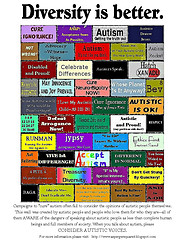Wordy Wednesday – the Incredible 5 Point Scale

“Aha! No guessing required then?”
“Indeed. I thought I’d make it easy this week.”
“So how much is your commission?”
“Oodles upon oodles.”
“No link to Amazon?”
“You don’t need it, just some coloured paper, a black pen, cardboard and some sticky backed plastic?”
“Sticky backed what?”
“Laminater to you dearie.”
“And why exactly would I want one of these. I don’t have any autistic kids?”
“Well try it on yourself and if it works then you might have a go with the kiddie winkies.”
“Again, why?”
“Well maybe you have little kids that don’t have many words, or kids that lose their words when they get all het up.”
“The word "tantrum" does spring to mind.”
“Do you always know what’s upsetting them?”
“Sometimes is obvious but other times they’re wailing so much I just can’t figure it out.”
“Well that’s when this comes in handy.”
“How?”
“Quite often I can get really, really upset about something, I can feel the pressure building, breathe faster, heart racing, that sort of thing.”
“Me too.”
“We’re adults, we can usually recognize what’s happening to us, but children often don’t realize that they are heating up.”
“I suppose. But how would this help?”
“The idea is that you catch them as their emotions are rising. If you start with when they’re having a good day…”
“Or moment!”
“True! Then they can learn to associate feeling okie dokie with green, nice, calm and happy.”
“Okay.”
“Then you want to catch them when they’re just starting to get upset ‘yellow’ or already upset ‘orange’ but not when they’ve completely lost it and in the red zone.
“You know, that’s quite a useful skill to acquire for anyone. Bio rhythms. ”
“Indeed. Wish someone had introduced it to me when I was little. One of the things that I most like about this, is that I’m being active as a parent. Sometimes I can feel so helpless but this helps the communication. Even if they’ve lost their words they can still point at the right colour, the numbers helped for one of mine in particular.”
“I’m not sure about your colour scheme though. I often associate being in a rage with black or blinding white.”
“Adapt and survive, just figure out what works for you.”
“So you could probably adapt that to other things.”
“Right.”
“Like…one of mine has a tough time with our bedtime routine.”
“Really? Sounds like you’d be better off with "sequencing" and "social stories" for that one.”
“?”
“Another time, another post.”
“Could I use it when he gets in a tizzy about sharing?"
“Sure. Just about any tizzy you experience, it’s very flexible.”
“Yeah, so that might help get things under control.”
“I hope so. One of the most fabulous experiences I've had is helping them recognize what it feels like to be in a 5 and then gradually, gradually, gradually oozing back down to a green 1.”
"We Americans call that 'empowering.'"
"Hmm, for both of us!"
“Geez, I bet it took forever until they grasped the concept?”
“You would think so wouldn’t you, but actually they ‘got’ it straight away. It took some practice, but it certainly tapped into something that’s maybe innate in all of us.”
“Ooo a bit like those "colour me beautiful" things in the 80’s?”
“Don’t date yourself dearie.”
“So are you gonna tell me about the calming techniques?”
“Good grief no, that would take forever. You could write tomes just on that one subject.”
“Another time perhaps?”
“There are a zillion books out there on the subject already.”
“Could you recommend one?”
“Well it’s a bit tricky as there isn’t really a one size fits all version.”
“Wriggled out of that one well. See you then. Cheers dears!”
“Hey, don’t pinch my line!”
“O.k. How about, toodle pip!”
“See ya babe.”









